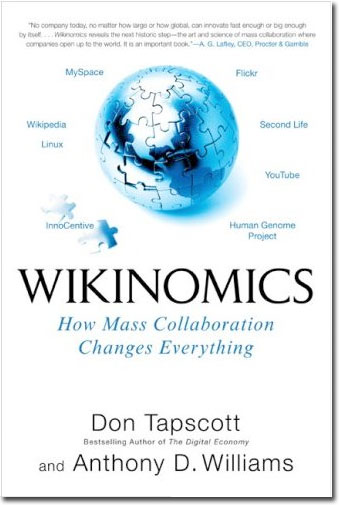Rise of the wiki community

Hundreds of people in your neighborhood have moments of brilliance on what would make it a better community economically, socially and environmentally (ie a coffeehouse having its very own socially-minded social network), but then those ideas are gone, usually for years if not forever, like that acclaimed research paper back in college. That will no longer be the case in the near future.
First a look at the problem, using this excerpt from the book Wikinomics by Don Tapscott.
“We still, for example, think in industrial-age terms about work as a routine that repeats endlessly…
…Yet the vast majority of employees don’t do business processes anymore, at least not in the traditional sense. After years of optimizing supply chains, outsourcing, automation, and stripping costs and inefficiencies out of the back office, most employees spend very little of their day working on regularized activities….
…When new problems and exceptions arise, people in organizations will swarm around that exception to try to resolve it. Think about the last time something in your workplace went haywire. How many people were jumping up to help solve the problem? In most workplaces, the answer is ‘as many as possible,’ because people genuinely enjoy the challenge of coming up with solutions to workplace exceptions in a truly spontaneous and collaborative fashion (it definitely beats the 9 a.m. meeting!)
The problem from an organizational and knowledge-management point of view, however, lies in the inability of firms to capture and codify those moments of inspired brilliance – the moments when someone does something spontaneous that could be the key to unlocking a whole new approach to getting things done.
Tomorrow, how to capture those ideas and apply them to the real world.
Download the entire Chapter 9 here.

Leave a Reply